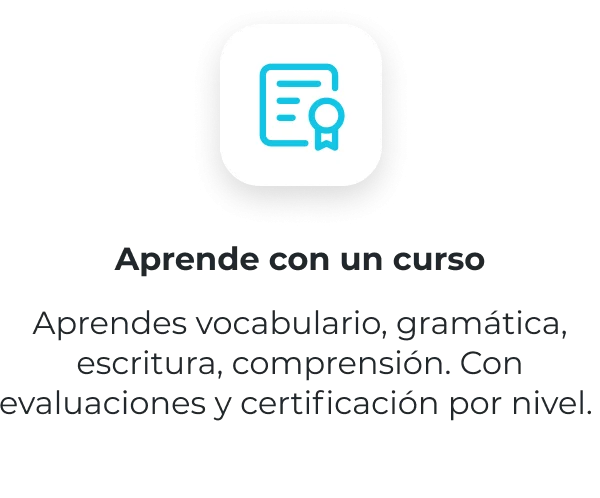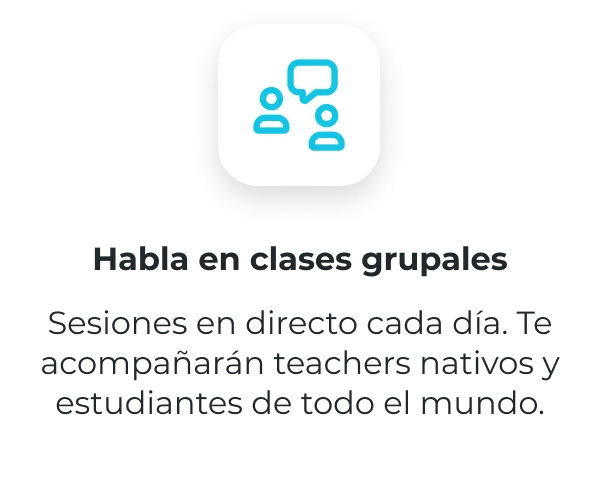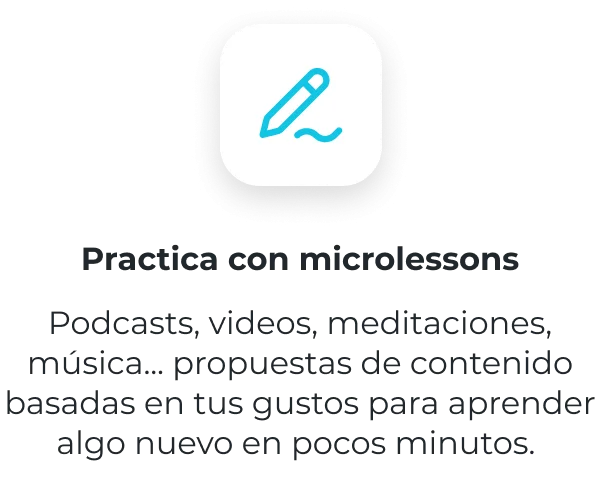Usos y gramática del verbo should
¿Quieres aprender a usar el verbo modal should? Regístrate gratis al curso de ABA English para aprender los verbos modales en inglés y mucho más y únete a los más de 30M de estudiantes que han confiado en nosotros.
¿Cuándo y cómo usar el verbo should?
Should se utiliza para expresar obligaciones, recomendaciones o consejos, dando una opinión de lo que se considera correcto. En español podría traducirse como ‘debería’.
¿Cómo se usa el should? Se utiliza después de cualquier pronombre personal y seguido de un verbo en infinitivo usando la siguiente estructura:
Sujeto + should + verbo infinitivo
Estructura y ejemplos del verbo should
Aquí tienes algunos ejemplos de oraciones con should para que aprendas algunos usos.
Verbo should en afirmativo
Should usa la siguiente estructura en oraciones afirmativas:
Sujeto + should + verbo infinitivo
Ejemplos:
- You should go to the doctor as soon as possible. (Deberías ir al doctor lo antes posible).
- John should have taken that job. (John debería haber tomado ese tranajo).
Verbo should en negativo
Should usa la siguiente estructura en oraciones negativas. Se suele usar la forma contraída shouldn’t:
Sujeto + should + not + verbo infinitivo
Ejemplos:
- You shouldn’t eat junk food. (No deberías comer comida chatarra).
- He shouldn’t have boarded that plane. (No debería haber embarcado en ese avión)
Verbo should en interrogativo
Should usa la siguiente estructura en oraciones negativas:
Sujeto + should + verbo infinitivo
Ejemplos:
- Should I lose weight? (¿Debería bajar de peso?)
- Should we buy the house? (¿Deberíamos comprar la casa?
+30 MILLONES DE ESTUDIANTES
Únete a la academia digital de inglés
más grande del mundo y aprende inglés
Ejercicios del verbo should
Ejercicios del verbo should en afirmativo
Rellena las siguientes frases con el verbo que está entre paréntesis más el verbo modal should:
- You _______ ____ to the gym, you will feel better. (go)
- You touched all the animals in the farm. You _______ ______ your hands. (clean)
- You _______ stop __________ junk food. It’s not good. (eat)
- You are failing all the exams. Maybe, you _______ _______ harder. (study)
- Your son looks dehydrated. He _______ _______ more water. (drink)
- You don’t pay attention to me, you _______ ___ more attentive. (be)
- Your dog looks very thin. ;Maybe you _______ _______ its food (change)
- Your mother needs a pause. She _______ ____ for a few days. (go away)
Respuestas: should go, should clean, should stop eating, should study, should drink, should be, should change , should go away
Ejercicios en negativo
Sigue practicando y rellena los espacios en blanco de las siguientes frases, usando la forma negativa del should para dar recomendaciones:
- My father (drive)__________ , he is very old and he gets easily distracted.
- You (watch)__________ too much TV. It’s time you turn it off.
- It’s very late. My daughter is in the park and she (be)__________ out.
- Your children are missing you. You (work) __________ so much.
- It’s a private meeting. You (record) _________ our conversation.
- I am very worried. I ________ have (allow) ____ them to go out.
Respuestas: shouldn’t drive, shouldn’t watch, shouldn’t be, shouldn’t work, shouldn’t record, shouldn’t have allowed
Ejercicios en interrogativa
Completa las siguientes oraciones interrogativas, usando la negación del verbo modal should más el verbo que hay entre paréntesis:
- _______ I ________ him?, what do you think? (call)
- _______ I _______ my job? I am not sure whether it will be a good option. (change)
- _______ we _______ Lucy to our wedding? We haven’t seen her for a long time. (invite)
- _______ I ____ this dress? It’s so expensive, but I love it. (buy)
- _______ my children _____ for this summer camp? I am not sure how safe it is. (sign up)
- _______ we _____ to the city? In a short time, our sons will be teenagers and they will need it. (move)
- Why _______I _____ your exercises?! It’s unfair! (do)
- When ______I _____ for university? (apply)
Respuestas: should i phone, should i change, should we invite, should i buy, should my children sign up, should we move, why should i do, when should i apply
Otros enlaces de tu interés:


























